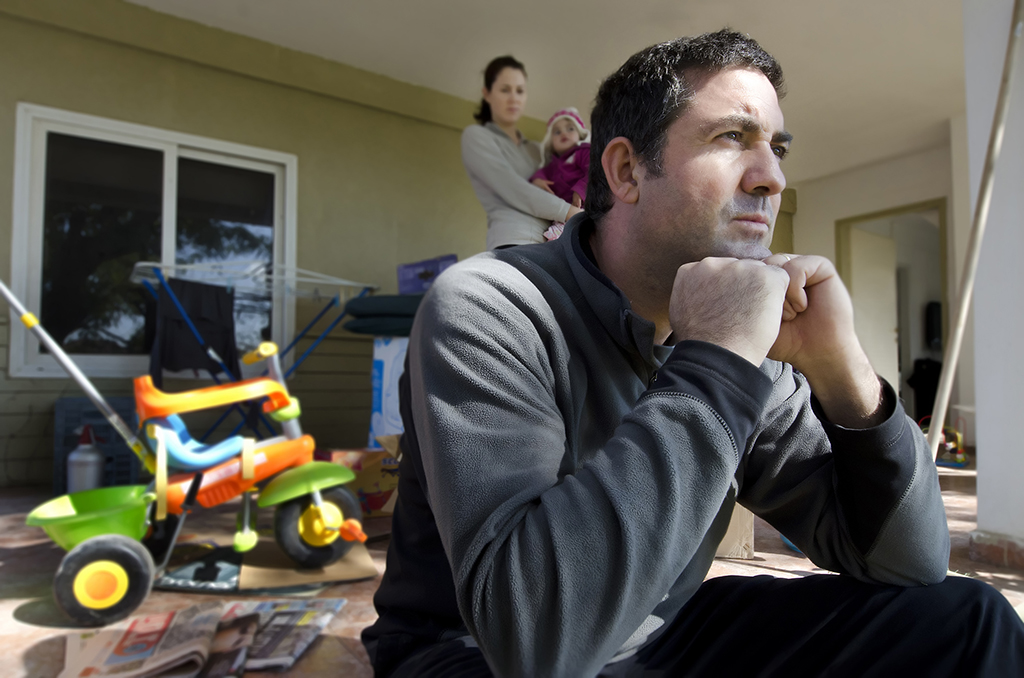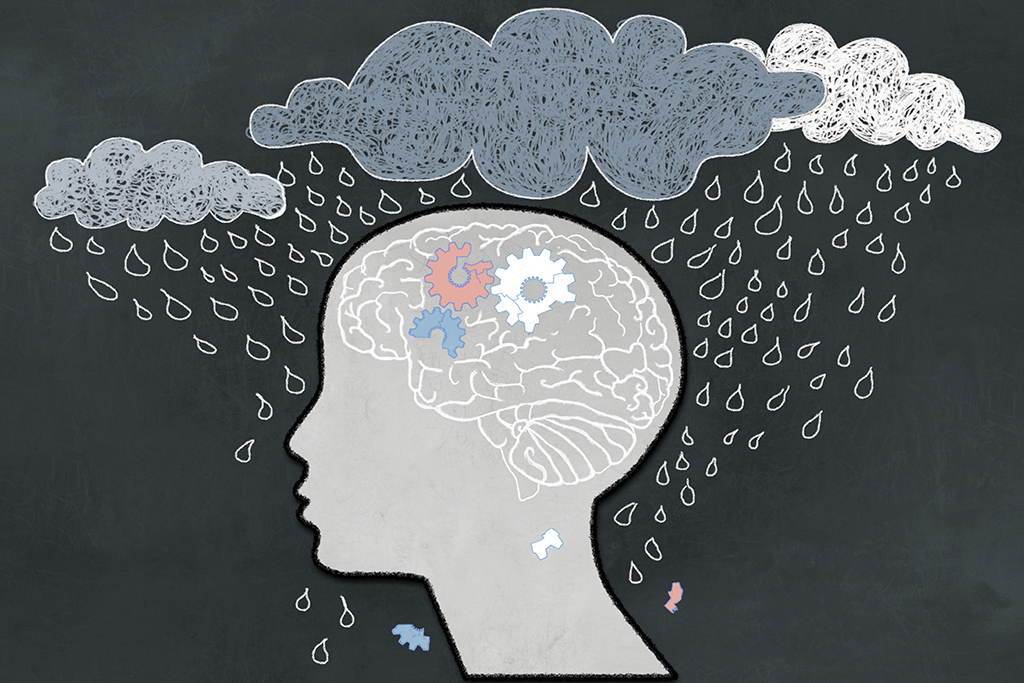COVID-19 has changed the way we socialize, work, and even shop for groceries. We talked to clinical psychologist Dr. Andrew Mendonsa about how to maintain a positive mindset, and how we can help those most at-risk for developing mental health issues.
Table Of Contents
COVID-19, the disease caused by the novel coronavirus, has affected lives across the world. Thousands have also experienced the mental and emotional toll of social isolation, lost income, worry for loved ones, and fear of uncertainty. In this light, mental health resources are an important part of the battle — especially when we think long-term.
We sat down with Dr. Andrew Mondonsa, a clinical psychologist and part of our executive team at Sprout, to learn healthy ways to respond to the “new normal” we all face, and what we can do to help loved ones and neighbors. Here’s what he had to say:
Stay Connected

For many people, the threat of COVID-19 changed the way we do business, socialize, plan for the future, even shop for groceries overnight. The illness also injected a massive dose of uncertainty into our everyday lives, which can cause a lot of stress. To keep a healthy mindset in the midst of upheaval, start with the basics, says Dr. Mendonsa.
“Maintaining good mental health isn’t as complex as people think,” he said. “It doesn’t have to be getting a therapist.” He suggests talking on the phone, going for a walk, or reaching out to old friends. “Direct your attention toward something positive.”
Dr. Mendonsa touted the benefits of virtual socializing. Nothing beats face-to-face time with friends and family, but communicating online still gives us a mood-boosting dopamine hit. Those FaceTime chats and virtual happy hours also give us a chance to connect with people we don’t often see.
“I’ve heard from friends I haven’t spoken to in years,” said Dr. Mendonsa. “We have this gift of time to connect with people and to re-energize relationships and friendships.”
Need to talk to someone today?
Call us at 855-430-9426 to speak with a recovery specialist.
Know When to Seek Help

Although feelings of anxiety are totally normal during a global pandemic, it’s important to recognize signs that it’s time to seek professional help. Anxiety disorders are already the most common mental health issue nationwide, affecting nearly 40 million Americans. During a health crisis, symptoms can worsen.
People with social anxiety, obsessive-compulsive behaviors, or depression may find it difficult to leave the house, even to replenish groceries. Because social isolation can make it difficult for friends and family to spot unhealthy behaviors and intervene, it’s easy to let mental health issues escalate. Likewise, if you struggle with substance abuse, the abundant time alone can lead to a temptation to use. If you have struggled with mental health or substance use disorders in the past, here are signs that you need to consider professional help:
Withdrawal
Unfortunately, social distancing by nature can lead to withdrawal, so it’s important to pay attention to your mood. Are you avoiding calls from family or friends? Retreating to your room rather than interacting with roommates? Everyone needs some “alone” time, particularly in times of crisis; but if you notice you’ve become disinterested in socializing or start to feel listless, this is a sign to seek help.
Maladaptive Thoughts
If you struggle with recurring negative thought patterns, this may be another sign to seek help. Without interaction with friends and family, maladaptive thoughts can lead to harmful behavior, as Dr. Mendonsa described in a previous interview. Counseling can help you hit “pause” and reframe your thinking to be more positive and productive.
Drug Cravings
For anyone struggling with a substance use disorder, cravings are a sign to seek help. This is particularly important if you are not yet in recovery as they can be a sign of physical withdrawal. Depending on the substance, withdrawal symptoms can be severe, or even life-threatening. Some require a medically assisted detox.
To learn about your options for substance abuse treatment, call us any time at the number below. All Sprout Health facilities remain open with measures in place to safely care for clients.
For online support, here are some of the free resources available to cope with life during COVID-19 if you struggle with substance abuse, mental health issues, or co-occurring disorders:
7 Cups – Volunteer-based online counseling
Bliss – Free cognitive behavioral therapy from the Centre for Interactive Mental Health Solutions
The Trevor Project – Crisis intervention for the LGBTQ+ community
Need help now?
Call us at 855-430-9426 to speak with a recovery specialist.
Recognize Who’s At-Risk

Although life during COVID-19 has already taken a heavy toll on our collective mental health, people with a history of substance abuse or mental illness are particularly vulnerable.
“[The substance abuse population] tends to be more affected economically by coronavirus,” says Dr. Mendonsa. “They’re more stressed about money and they often can’t get jobs that would be more protected.” People with a history of substance abuse are also more likely to have a criminal record, which can affect their job prospects if they get laid off.
As the financial and psychological impact of life during COVID-19 grows, it’s important to recognize psychologically at-risk groups in addition to those who are physically at risk. Check in regularly with loved ones, friends and neighbors. If you have the means, you can help by supporting mental health organizations or by volunteering your time. Here are a few organizations where you can make a difference:
IMAlive – Become a crisis intervention volunteer
National Alliance on Mental Illness – Take the stigma-free pledge
Families for Depression Awareness – Share your story
7 Cups – Volunteer as a listener
Red Cross – Become a mental health volunteer (professional qualification required)
Embrace the Chance to Pause

Ultimately, the best way to reduce anxiety during these uncertain times is to embrace the opportunity to slow down. The right mindset during this time of “forced pause” can indeed lead to positive outcomes, says Dr. Mendonsa.
“This is a unique opportunity to reflect. If you’re on mandatory lockdown, it’s important to take that opportunity and think, how can I use this time?”
If you’re furloughed at home, now is a great time to consider a career change, learn a new skill, or examine your goals. Business and school closures have also meant more time with family. Focusing on the positives can help relieve the anxiety of events you can’t control, while allowing you to reshape your life in a way that you might not have the chance to otherwise. Here are resources you can use to further your education or learn new skills online for free:
CNET – online education for every age and grade
GED – online prep to earn your GED
Flatiron School – free online coding class
Coursera – free online courses you can finish in a day
Google Skillshop – get certified in Google workplace tools for free
Bit Degree – free IT courses with certification
SkillShare – free online classes across a variety of subjects
Although we can do little to reduce the uncertainty or fear that surrounds life during COVID-19, we can all take advantage of the chance to reassure loved ones, connect with old friends, help those in need, and reflect on what we want from life with the one gift many of us have from the crisis — time to sit still.
Have questions about addiction?Chat with one of our recovery specialists now.

Written By: Sprout Editorial Team
The Sprout Health Group editorial team is passionate about addiction treatment, recovery and mental health issues. Every article is expert-reviewed.


